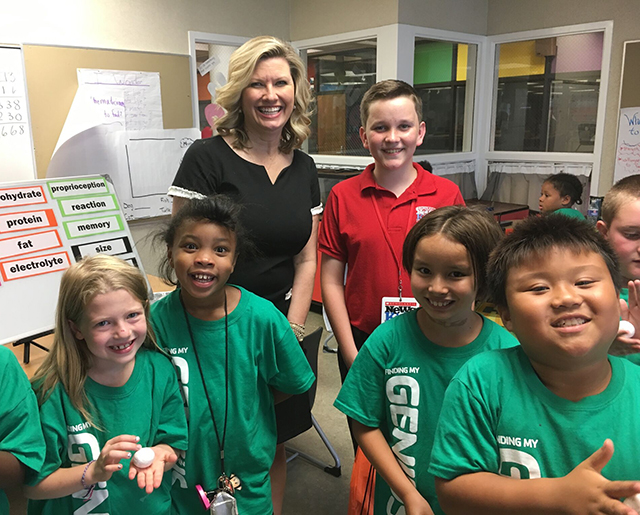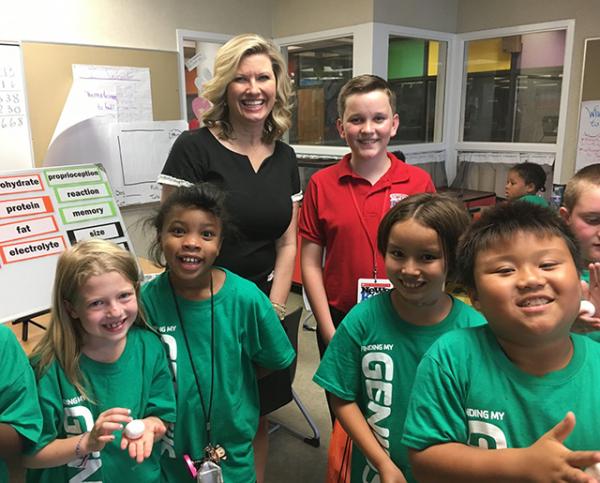KID REPORTERS’ NOTEBOOK
Science in the Summer

WATCH THE VIDEO
Click below to learn more about the GSK Science in the Summer program.
A free program is helping kids learn about science during their summer break. GSK Science in the Summer is offered to students in grades 2 through 6 in 26 cities around the country. GSK stands for GlaxoSmithKline, a global pharmaceutical company that has been sponsoring the program for 31 years.

Ryan with Science in the Summer students and Marti Skold-Jordan, GSK community partnerships manager
“This summer, we’re expanding it all over the country,” said Marti Skold-Jordan, GSK community partnerships manager, “so 40,000 kids will get a free week of science camp.”
The curriculum is designed to give students a boost in science, technology, engineering, and math, the four areas of STEM.
"A GREAT EXPERIENCE"
Beth Basile, a mother of five, has sent all of her children to a Science in the Summer program at the local library in Quakertown, Pennsylvania.
“This is a great experience for all kids, no matter what their interests might be,” Basile said. “The topics they cover are extremely fun and exciting.”
Basile credits Science in the Summer with inspiring her son Matthew to develop a love of science at a young age. As a kid, he said that the program helped him realize that “science was the closest he would ever get to magic.”
Matthew, who is now 21, just graduated from the Massachusetts Institute of Technology with a degree in computer science and electrical engineering. “When he was very young,” Basile said, “Science in the Summer gave him the opportunity to explore the world, which is invaluable.”
The program is not just for budding scientists, Skold-Jordan said. It helps all kids see that science is part of our everyday life, from the water we drink to the air we breathe.
FROM SPORTS TO ASTRONOMY
The Franklin Institute in Philadelphia provides Science in the Summer materials to science museums in cities where the program is offered. Educators from those museums lead the one-week classes in their respective communities. Sessions held in St. Paul, Minnesota, on July 31 and August 1, for example, were facilitated by two educators from the Bakken Museum in Minneapolis, Minnesota.
This year, kids are exploring how science relates to sports. They are learning about the training and equipment needed for athletes to excel.
The curriculum is designed to complement concepts that students learn in school in grades 2 through 6. Bekki Burnette, the K-12 programs educator at Bakken, said that the experiential learning opportunities are among the best aspects of the program.
“We get to do hands-on activities that kids might not be able to do in school,” Burnette said. “They can engage both their bodies and their brains.”
Next year, the program will focus on astronomy. How can kids prepare to be part of Science in the Summer? Megan Burns, outreach educator at The Bakken, said that it’s easy. You just have to be “ready to participate with other people, make new friends, learn some new things, and want to have fun in the summer.”
